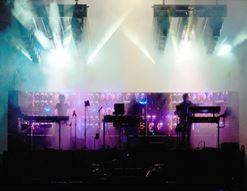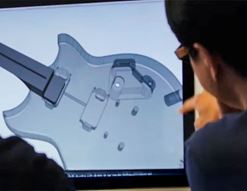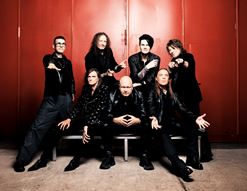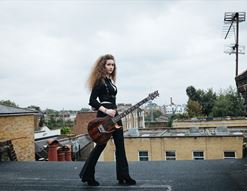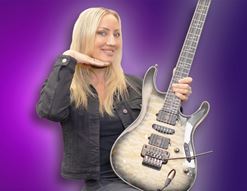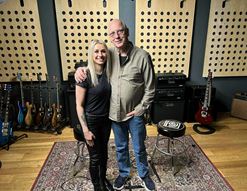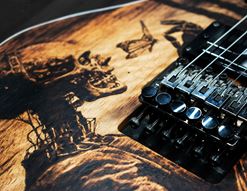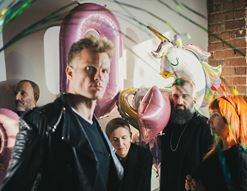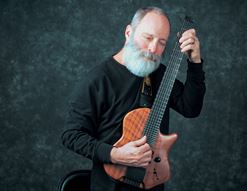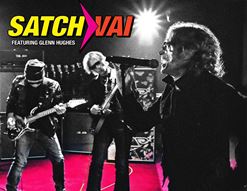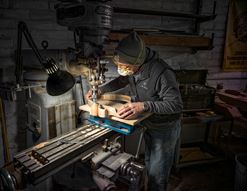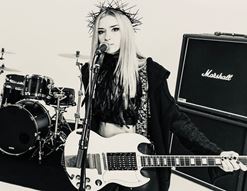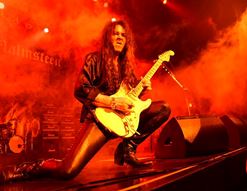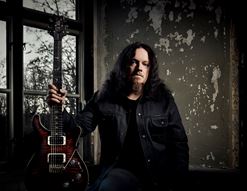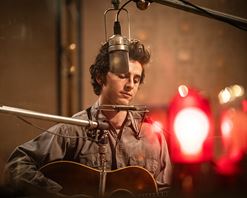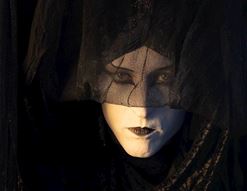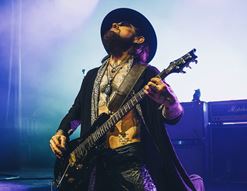Published on 16/11/2018 10:00
Written by
Ray
Daughters are one of those bands who are impossible to forget about once you've heard them. Hailing from Providence, Rhode Island and formed in 2003 during a particularly purple patch for the city art-wise, Daughters create the kind of intense and brutal sounds that fans of less mainstream music have found to be thrilling and challenging in equal measure.
Certainly, there is no band quite like them: the rhythms swagger, the vocals are like a demented Evangelist delivering sermons from hell and the guitar onslaught brought by Nicholas Sadler is unlike anything heard before. Nick's guitars scream, bark, bray and stampede with a ferocity and a vivacity that sears and burns.
Daughters are currently enjoying a healthy and very creative time in their career, having recently released their fourth album, 'You Won't Get What You Want', on Mike Patton's Ipecac record label.
Daughters are currently touring the US with a European leg booked for next Spring. We managed to grab Nick for a brief and exhilarating chat about his attitude & sensibilities regarding guitars, the internet and pedal board fanboys! Nick proved himself to be fascinating, articulate and very specific about his opinions, not to mention entertaining. Read on to find out more about this genuinely unique player.
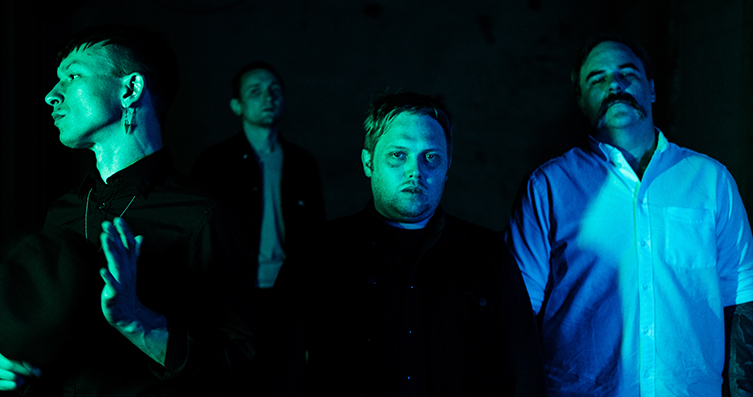
Hello Nick, thank you for taking the time out to talk to us! Whenever I talk to friends about Daughters, I have a tricky time describing the sound other than ‘Epic, Intense, Scary and Thrilling’. Genre distinctions are difficult at the best of times, not to mention short-sighted, but where roughly would you place your band, genre-wise?
To me, Daughters is a Rock band.
Can't argue with that! Daughters are originally from Providence, Rhode Island. Was there much of a particular scene in Providence back then? Like a Grindcore scene or whatever?
Providence has not had a “Grindcore scene” really - nothing communal like that has ever cohered. Genre tags are abstractions laid over a group by outside parties in many cases; Daughters has never been a Grindcore band, or a Mathcore band - these descriptions were applied to our music after album releases, later on.
Providence in the 2000s was a community that embraced and promoted creativity; it was the home to many adventurous and interesting musicians and artists, as well as a hub for those like-minded travellers. These things are still there, thanks to several hard-working and tasteful promoters in the area, but in the first decade of this century, Providence experienced what is sometimes referred to as a “renaissance” of creativity. I once read that it was becoming the next “Seattle.” Providence music at the time was incredible but too challenging for that to be true in most cases; this description might be helpful for music fans in explaining the feeling of being there though. Really, you had to be there.
You may have been asked this a lot but I’ve never found an answer: where did the name Daughters come from?
I’m not sure there is anything particularly meaningful behind the name, but it was the idea of former member Jeremy Wabiszczewicz. As I remember, there was no debate or investigation here.
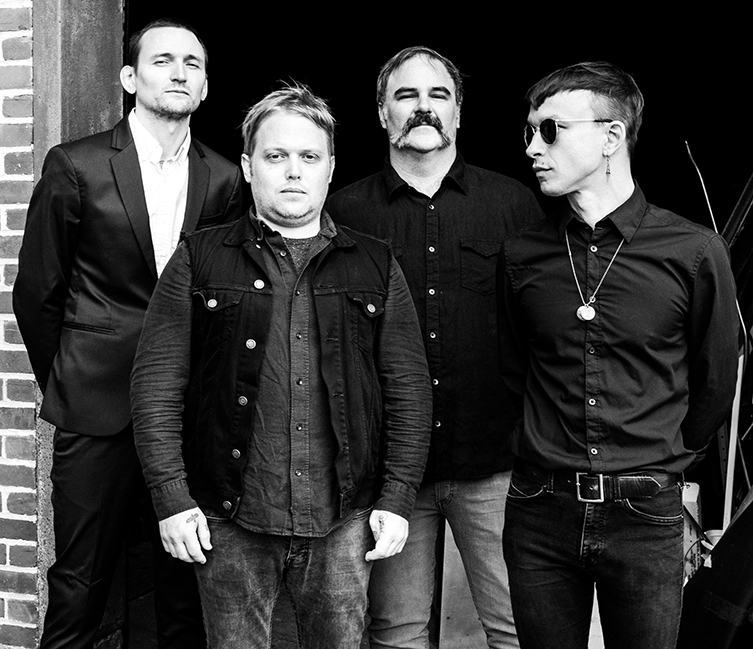
How does the songwriting process work for you guys?
It depends on the album. Our lives today have dictated that YWGWYW (newest album 'You Won't Get What You Want') would be written in my apartment over the span of several years, trading emails back and forth, working out details in person once or twice a year, when it was possible to have the band in the same room. Canada Songs, on the other hand, was more of a collaborative process that included either bringing in ideas for music to work on, or developing them spontaneously as a group.
When that first album, Canada Songs, came out in 2003, did you expect it to become as popular as it did?
I try not to have expectations for the music I work on beyond the hope that I can enjoy it somehow.
I came on board as a fan of the band during your third, self-titled album. Would you say that this was been the most influential Daughters album overall? It’s certainly extreme but some the rhythms make it more accessible. Is that where you guys really nailed the Daughters sound?
It feels to me that we are in a perpetual state of discovery where our sound is concerned - which is preferable. There are certain devices that re-appear and lend cohesion to the band as a recognizable sound across the spectrum of our albums, but I don’t want to have too many conscious notions of what it is that we sound like, which would be very boring. Defying my own, even subconscious, expectations is paramount; I need to be able to let go enough for surprise to be possible, taking myself out of the equation, to experience briefly, what it is that’s being made from an outside perspective.
Your incredible guitar playing is so unique. I’m kind of wondering where it came from! What did you grow up listening to?
Thanks. I am openly resentful of the instrument, how it places me within as broader cultural context, and am with no formal music education. I wholeheardtedly despise guitar culture as well.
I grew up as a young person attending countless punk, metal, hxc, noise shows, etc. Essentially, I was raised by a collection of music and art subcultures that I still interact with today - talking about 20 years now. Luckily, I happened to exist concurrently with the aforementioned creative renaissance experienced by the city of Providence, RI. There is an experiential back catalogue of radical music that helped form the foundation of my understanding of music. And there is the overwhelming notion of time, place, and community to regard.
So, it’s possible that certain existential synchronicities combined with a certain wherewithal - meaning, I continue to want to be involved creatively despite my many obvious limitations - that has created something “unique” out of the pure desire to make music.
Eventually, I had to accept that not only did I not want to play guitar like Eddie Van Halen, and most likely can’t play guitar like him, but that I was simply not meant to. After that, it’s about keeping an open mind and accepting certain sounds and proclivities as aspects of a style: so, developing a personal context over time in which ones contributions make sense, rather than seeking to fit into an already established context.
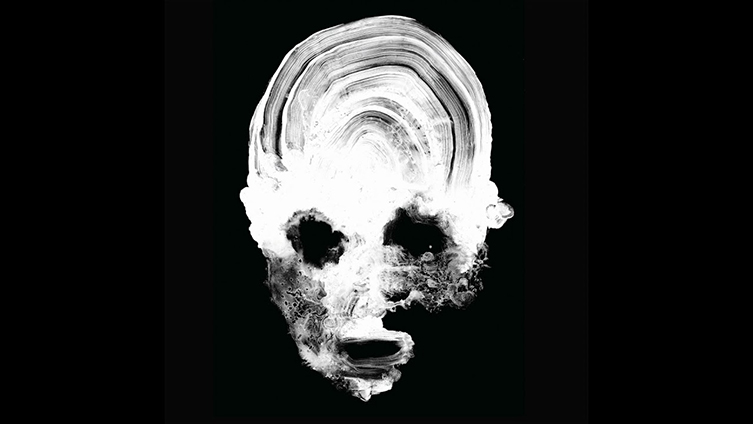
I would describe your playing as quite uncompromising. Bearing in mind what you've just said, did you still go through all of the usual classic rock and shred phases before you reached the style you’re known for?
I did not. To this day I know or can perform very few “covers” or classic riffs. I am not a shredder by any means - I think of myself more as a songwriter or something like a composer, who's mostly known for playing guitar. My interests usually lie with song structures, patterns, and sonic textures.
Let’s talk more about your playing. I love your complete rejection of the Blues scale and the Pentatonic: all of the worn out, dealt-with clichés of guitar playing! You don’t use any of that at all. Is this a conscious decision?
It is. YWGWYW, though, utilizes some basic minor scales and chords, with Less Sex leaning heavily on a basic “blues” riff.
Is it fair to say you are primarily interested in atonality and drama as a musician?
I like atonality, but it doesn’t contribute to a primary interest as a musician. I like, and I feel, all kinds of music. I like to keep the page blank and seek to have no primary interests in music that would define for me what I’m making. Atonality, though, obviously forms part of the basis on which Daughters leans, and so far, we have kept that one running. We also love strong, basic, melodies and so they have appeared in higher frequency on the last two albums than on the earlier ones, although they are there throughout. I did intend to create palpable mood and tone on YWGWYW, which is in line with my desire to score film.
I’m really interested in the equipment you use. I’ve noticed a Gibson Les Paul Studio and a custom made First Act guitar. Do you still use these instruments?
I do. The Les Paul is with me now, while the 9 string has become more of a recording tool. I have since added a Fender Strat and my first signature model the “Sadmaster” by a forthcoming company called Cardinal Instruments. The primary guitar heard on YWGWYW is an inexpensive, unaltered, Fender Squier that belonged to my now deceased friend and influence Jospeh Good Buzzell.
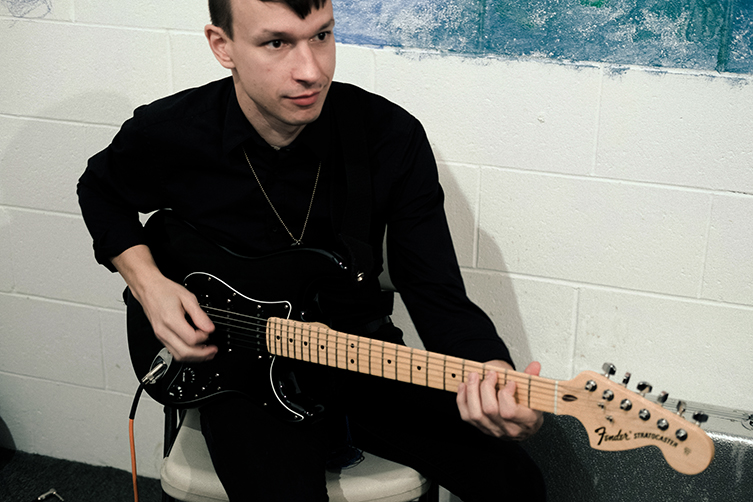
What do you look for in a good touring guitar?
I don’t have any money, so nothing - I just use what I have always had or have been able to afford.
What is currently on your pedalboard?
I try not to talk in great detail about the tools we use, but so many people come right up, take pics of my board, and post to various pedal communities that I may as well divulge at least that much. With respect to touring poor, I have always tried to rely on pedals that are easy to get ahold of, that most people have. It’s a lot of BOSS pedals. I love BOSS; you can stand on them, throw them, spill liquids on them - they’re nearly immortal. The pedals will also change depending on what the album or setlist is.
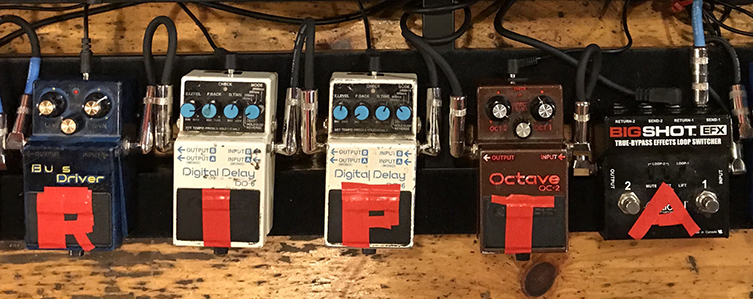
I have recently been fortunate enough to collaborate with Fuzzrocious pedals to develop the first Daughters guitar pedal called The Empty Glass, which was released as a limited build at first, but will see a second, much larger, edition soon.
Do you have any secret weapons for getting your famously abrasive textures and sounds?
There are a handful of practicing and playing techniques that I sometimes rely on to get the Daughters vibe across, but not really. It’s mostly about how songs are structured, meant to be perceived, and how they are either produced or not produced. The reason Hell Songs sounds the way it does is because we created what I felt like would be an uncomfortably sterile listening space, which might be one example of how I seek to control the way music is understood as abrasive - it’s not always about the obvious: volume, distortion, etc. Silence and minimalism can both provide some of the most abrasive listening experiences a person may have.
You guys are pretty ferocious live. How does that play out on your equipment?
The equipment is mostly fine, it’s our bodies that take the real beating. I used to feel that it was part of my job to make our instruments submit and not the other way around, but I was wrong: the instruments always win, they just allow you feel like you might be in control.
"Silence and minimalism can both provide some of the most abrasive listening experiences a person may have."
Here’s the thing though: we are not some premeditated live show. It’s all very much in the moment. My general hope is that either the music or the experience of sharing the music, that environment, will take me out of myself for a little while. I want to be able to look back at footage and not recognize what I’m seeing - I don’t want to know too much about what it is to be Daughters.
Do you have problems with broken guitars? I’m thinking of frontman Alexis’…uh, unpredictable behaviour on stage! I’m also thinking about ruining frets etc with the intense way you play…
I can’t think of a moment where Lex has contributed to the damage some of these guitars have taken. He’s unintentionally hurt some pedals over the years, but it’s mostly me doing the damage. I’ve intentionally and unintentionally broken a few guitars over the years, but the kind of damage that occurs usually only amounts to a desirable wear and tear vibe.
An example would be my Les Paul as it stands today. I use a slide on my ring finger throughout the song Recorded in a Pyramid, which includes a handful of full chord hammer-on, pull-off riffs while wearing the slide, resulting in many dings to the fretboard and body, with surprisingly few to the actual frets. Again, my biggest problem is probably that the guitar is more durable than my body is.
On a song like ‘The Virgin’ and a few others, you make use of very fast, atonal slides that sound chaotic but are also pretty precise. These are sort of trademark parts for you, I’d say. Are you just sliding your fingers up the frets? That must hurt like hell?
Well, that’s one of the elements of not knowing how to play guitar in a band, but insisting that you will. At this point I’ve put in sufficient enough thought and practice to attempt to create a style out of doing simple things like sliding quickly up and down the frets. There are different variations on the idea, little additions, or techniques that make it work which have been built up over the years. It does hurt though, in places like my rib cage. I used to get mild gangrene in my fret fingers from the relentless friction of playing this way, but I ended up discovering that Fast Fret, lemon oil, and changing string regularly helps to avoid the slow grinding down of my fingertips.
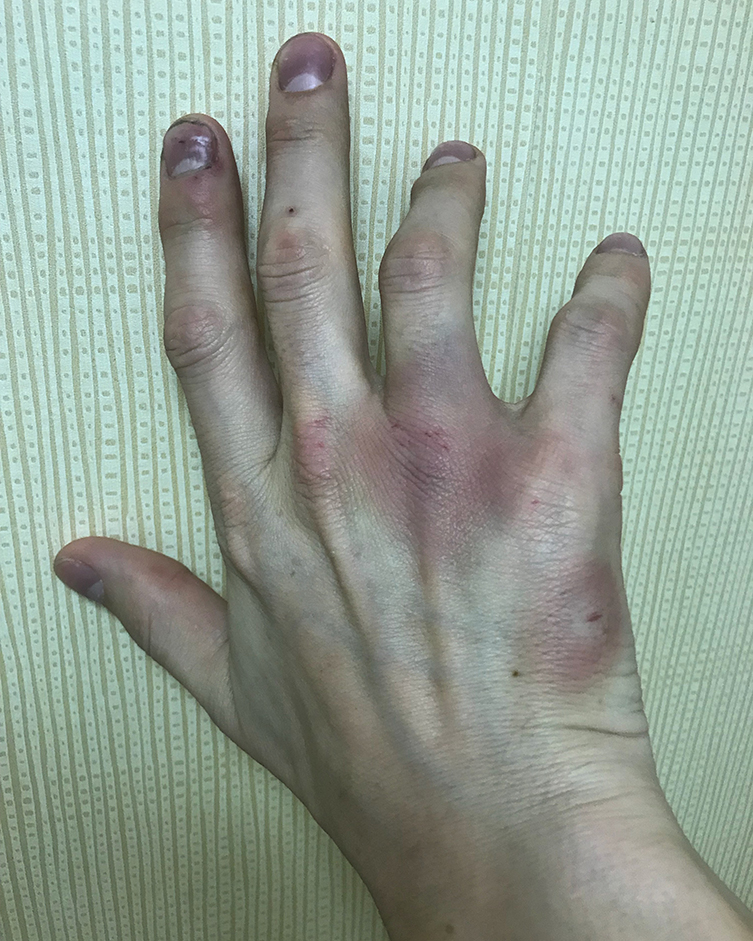
The new record is most definitely ‘Daughters’, though this time it is perhaps less frantic and more sinister, threatening maybe. Was there a plan to go in this direction or was that just what came out?
It took some time and thought to get there, but yes, this was an intentional move. I hope to score more movies, which is some of what I’ve been doing while Daughters was on hold, and at some point, I realized that it would be better to not fight this motivation and find out what happens when I let it into the band more.
Songs like ‘Satan in the Wait’ have some interesting melodic synth parts. I think there were also some synths in the third album, is that right? Who handles those parts?
We don’t really use synths, but I have a small collection of dust-bin keyboards that have unique patches that I like to try to include. There is a really basic 80s Casio that made its way onto the Daughters and Fang Island S/T albums we made in 2009. Live, it’s been a mixture of myself, guests, samples, and now our friend Lisa who has recently joined up as our 6th live member.
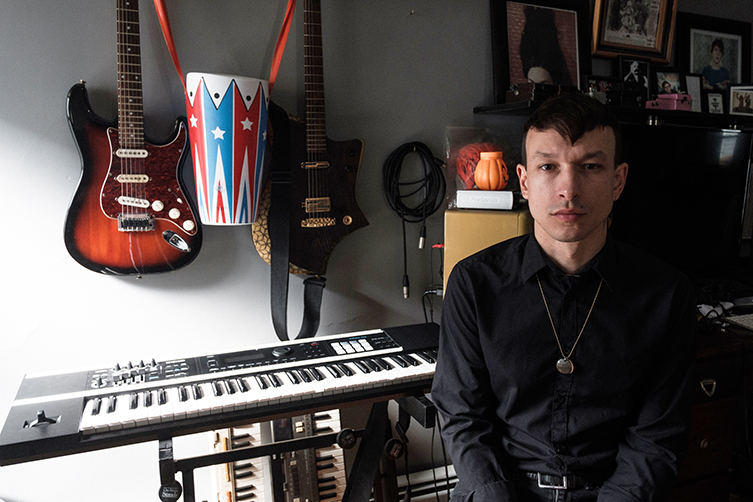
‘City Song’, ‘Ocean Song’ and ‘The Reason They Hate Me’ have very distinctive guitar tones. Is that some type of Ring Modulator effect?
This is difficult to describe, because there is no one thing that comes into play, especially not across a series of songs. I can say, though, that you would be surprised at what can be done with a Blues Driver.
You guys have had quite a temperamental history together. Are you all quite extreme personalities?
I think we are all very different people, and that over time we have conditioned ourselves to each other through this band, which is a murky notion, but is where some of our morrow ground emerges.
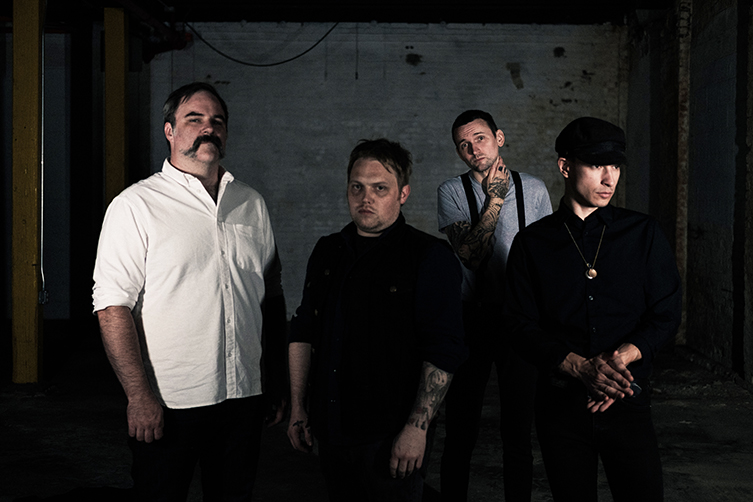
Musically, what are you trying to get across in your guitar playing?
Nothing, really.
Haha, cool, fair enough! On the guitar, do you think in terms of shapes or images? I’m assuming scale patterns are less available to you in terms of your approach?
I haven’t spent much time learning or applying scales. Some, but not much. I’m not sure it’s more of either idea - if the riff is pretty straightforward then it feels like images, sometimes the more complicated or busy stuff feels like patterns of shapes - not boxes, but of movements. We have tried to include the opportunity for some freethinking parts and in my mind, those are some of the best ones.
Has the internet made professional music easier or harder for you over the years?
It seems to have made it possible for any of this to be happening. The internet has brought our music to more people than before, was instrumental in the band being able to share new ideas with each other, and has helped my continued discovery varieties of music both new and old.
You are one of the most unique guitarists working today: what advice would you give other players who are looking to find their own voice on the instrument?
Be accepting of your limitations, keep an open mind, forgive yourself your failures, listen to as much different music as possible, and try to understand why it works or doesn’t work. Most importantly, don’t just be a player - you may turn out to be a great virtuoso, but it’ll be within the confines other musicians have created for you.
And finally, Nick, of all of the songs and guitar parts you’ve written and recorded, which one stands out as your favourite?
“Satan in the Wait” is my favourite Daughters song; melodically, dynamically, it’s the most apt description any of our music has of myself as an individual.
But I released a limited hand-cut 7’ lathe of some solo work on Foreign Sounds years ago that I still really like. It’s called “You Don’t Know Where You Are Anymore” and it’s made from the components of an old clock.
That sounds amazing! Nick, we know you need to go, thank you so much for sharing all of this with us! Have a great time on the US tour and we'll see you next Spring in the UK!
Daughters' latest release 'You Won't Get What You Want' is out now on Ipecec records. Keep up with Daughters on their official Facebook page here and their bandcamp page here.

